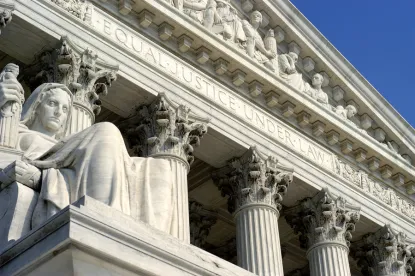Last year, we reviewed the Second Circuit decision in United States v. Blaszczak, which made it easier to prosecute trading on inside information. A divided panel of the Second Circuit Court of Appeals declined to extend the Securities Exchange Act of 1934, Section 10(b) and SEC Rule 10b-5’s (referred to herein as Title 15) personal benefit requirement to insider trading prosecutions under Title 18. The panel also found that confidential government information satisfied Title 18’s “property” element. Earlier this month, the Supreme Court vacated the judgment in Blaszczak and remanded the case for further consideration on whether confidential government information can constitute “property” for purposes of securities fraud statutes.
In Blaszczak, Christopher Worrall, while an employee of the Centers for Medicare and Medicaid Services (“CMS”), allegedly disclosed nonpublic information about pending changes in CMS reimbursement rates to friend and former CMS Employee, David Blaszczak. Blaszczak, who worked as a consultant, passed the information to analysts at Deerfield Management Company, L.P., who then profitably traded on the information. While Blaszczak received monetary compensation from Deerfield through a consulting agreement, Worrall did not receive any money from Deerfield.
Prosecutors brought charges under Titles 15 and 18, arguing that under the latter it need not prove that Defendants received a personal benefit. The trial court agreed and instructed the jury that in order to convict under Title 15 it needed to find that the information was given in exchange for a personal benefit, without requiring the same of an insider trading conviction. On appeal, the Second Circuit found that the personal benefit requirement under Title 15 did not apply to Title 18 and that confidential government information (like that passed by Worrall) may constitute “property” for purposes of securities fraud.
While Blaszczak was pending appeal to the United States Supreme Court, the Court issued a unanimous decision in Kelly v. United States—commonly referred to as the “Bridgegate Case”—which found that “a scheme to alter . . . a regulatory choice is not one to appropriate the government’s property.” Defendants in Blaszczak then argued that the Court’s holding in Kelly undermined the Second Circuit’s finding that nonpublic information was property under Title 18. The Supreme Court agreed, vacated the Second Circuit’s judgment, and remanded the matter for further consideration of the issue in light of Kelly.
The Supreme Court appears to be foreshadowing its disagreement with the Second Circuit and its finding that confidential government information can serve as “property” in a securities fraud case. Notably, the Supreme Court’s decision to vacate and remand the judgment did not disturb the Second Circuit’s finding that the personal benefit requirement found in Title 15 did not apply to prosecutions under Title 18.
We will continue to monitor this case due to the broad implications on the future of securities fraud prosecutions.





 />i
/>i

